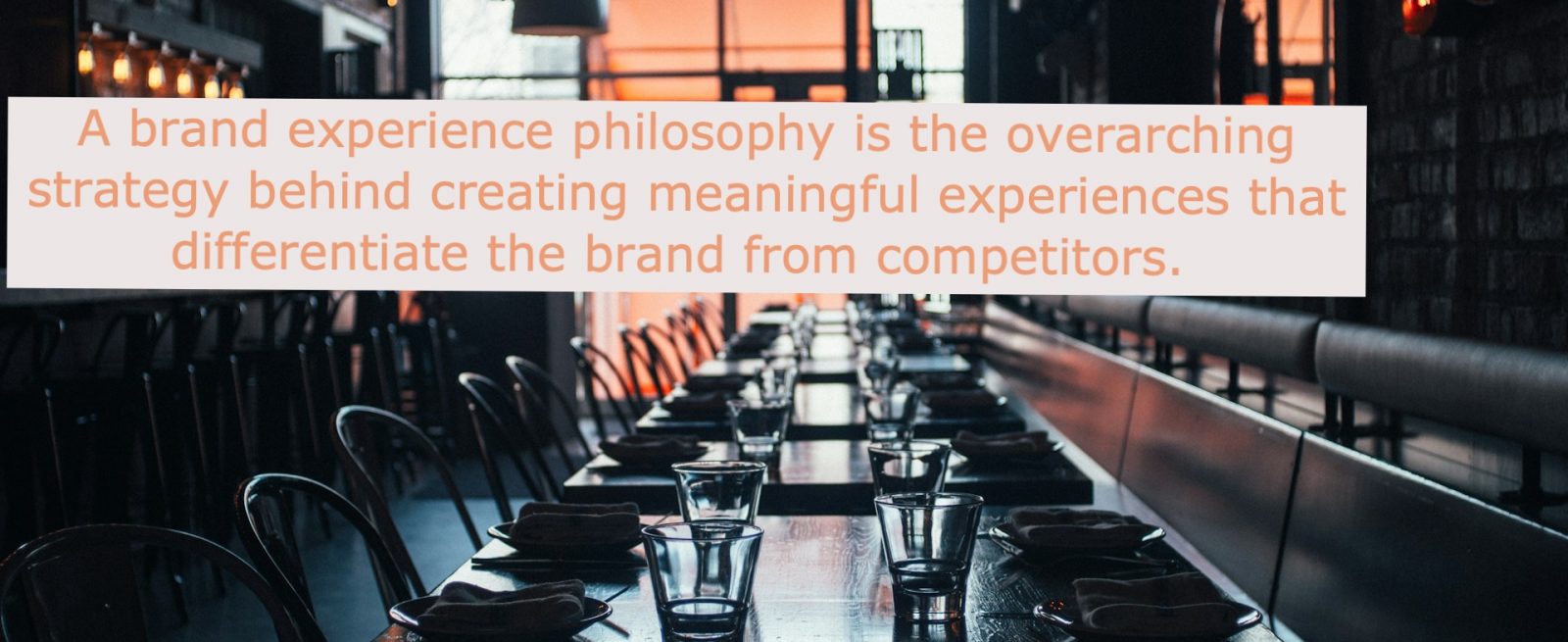‘Brand Experiences Create Memories.’
3 Min Read By Patrick Kampff
“We will be the number one restaurant in the world.”
That’s what restauranteur Will Guidara wrote on a cocktail napkin whilst sitting in a hotel bar after the prestigious World’s 50 Best Restaurants awards ceremony in 2010. That year, Guidara’s Eleven Madison Park in New York had placed last on the list. There was nothing to smile about and Guidara and chef Daniel Humm needed to do a lot of work to climb the ranks of the world’s most sought-after fine dining experiences.
And work they did. After the prophetic mission statement drafted on that napkin, Guidara introduced his now-infamous philosophy, “Unreasonable Hospitality.” He thought, “You need to be unreasonable to see a world that doesn’t yet exist.” That meant creating a service culture that shifted from getting every detail right to offering bespoke, over-the-top hospitality to guests.
His philosophy paid off. In the ten years that followed, Eleven Madison Park went from an average brasserie to a 3-star Michelin restaurant that topped the same awards list that had brushed them off in the past.
Service is black and white; hospitality is colour.
Service is black and white; hospitality is color.
The intriguing part is that Guidara intuitively elevated the profile of his restaurant by codifying the guiding principles that inform how his restaurant should approach the interactions with its guests across various touchpoints. He knew that through a differentiated experience, his restaurant would occupy a special place in the hearts and minds of his guests. In other words, he knew he needed to turn it into a brand.
For a guest, experiencing Eleven Madison Park’s brand encompassed everything from the impactful arrival at their grand Art Déco dining room to lighting and music levels being adjusted on the fly to foster intimacy and conversation. Plates and glassware were placed on the table a certain way because most guests would flip them over to find out who made them; when that happened, servers were on hand to tell the story of who, how and where they came from.
Under the “Unreasonable Hospitality” philosophy, examples like these are endless. To create jaw-dropping moments for guests, Guidara championed the power of doing things with intention: “Every decision, from the most obviously significant to the seemingly mundane, matters.” This is directly linked to how brand experiences are built.
Brand experiences create memories.
A brand experience philosophy is the overarching strategy behind creating meaningful experiences that differentiate the brand from competitors. It works alongside the business strategy, helping the company achieve its goals by deploying a plan that fosters emotional connections with customers and builds loyalty.
And that, in turn, is delivered through maintaining consistency when interacting with them.
If you don’t care, your customers never will.
Take the UK-favourite Dishoom, for example. Each location meticulously replicates the aesthetic and ambiance of the historical Irani cafés. Customers find themselves immersed in 20th-century Bombay with vintage furniture, sepia-toned family photos, antique mirrors and other period-specific artifacts that transport them back in time. The narrative is consistently embedded in every aspect of the restaurant, creating a coherent dining experience that feels like a journey.
In the case of Eleven Madison Park, Guidara went to great lengths to ensure his philosophy would be consistent for guests. Firstly, he started by mapping out their journey to understand the critical moments when going to a fine dining restaurant––the moments of truth. As one would expect, food presentation and description took Disney-esque theatrical form. But overlooked moments, like the initial contact on the phone when someone is making a reservation or when guests get their coats back from the cloakroom, were elevated, knowing they’d be the first and last opportunity to create a delightful impression.
Secondly, the “Unreasonable Hospitality” philosophy was supported by what Guidara calls his “non- negotiables”: the fundamental principles he established with his team to ensure alignment and guide the development of the ideas that followed. His set of non-negotiables equates to a brand’s experience pillars: the foundational elements that help contextualise and provide guardrails to the experience philosophy.
A promise, delivered.
When creating memorable brand experiences, landing the right pillars is vital. Not only should they stem from a deep understanding of customers’ expectations, but they should also represent something your brand is credible in. In short, they should be meaningful and feel authentic. So, get under the skin of your audience and look under the hood of your company!
If you don’t care, your customers never will.
Has your brand created deeper bonds and lasting memories in your sector?
When it comes to creating brand experiences that cut through, simplicity pays. According to our latest World’s Simplest Brands report, 64 percent of people are willing to pay more for simpler experiences. Brands that simplify our lives are winning both share of wallet and share of heart, as 78 percent of people are more likely to remain loyal to a brand that reduces inconveniences.
Intuitively, that’s what Will Guidara did at Eleven Madison Park on their quest to number one.
Has your brand created deeper bonds and lasting memories in your sector? Is your brand experience cohesive, consistent and compelling? Because just like in Guidara’s case, there’s always someone thinking about ideas to steal your lunch.

